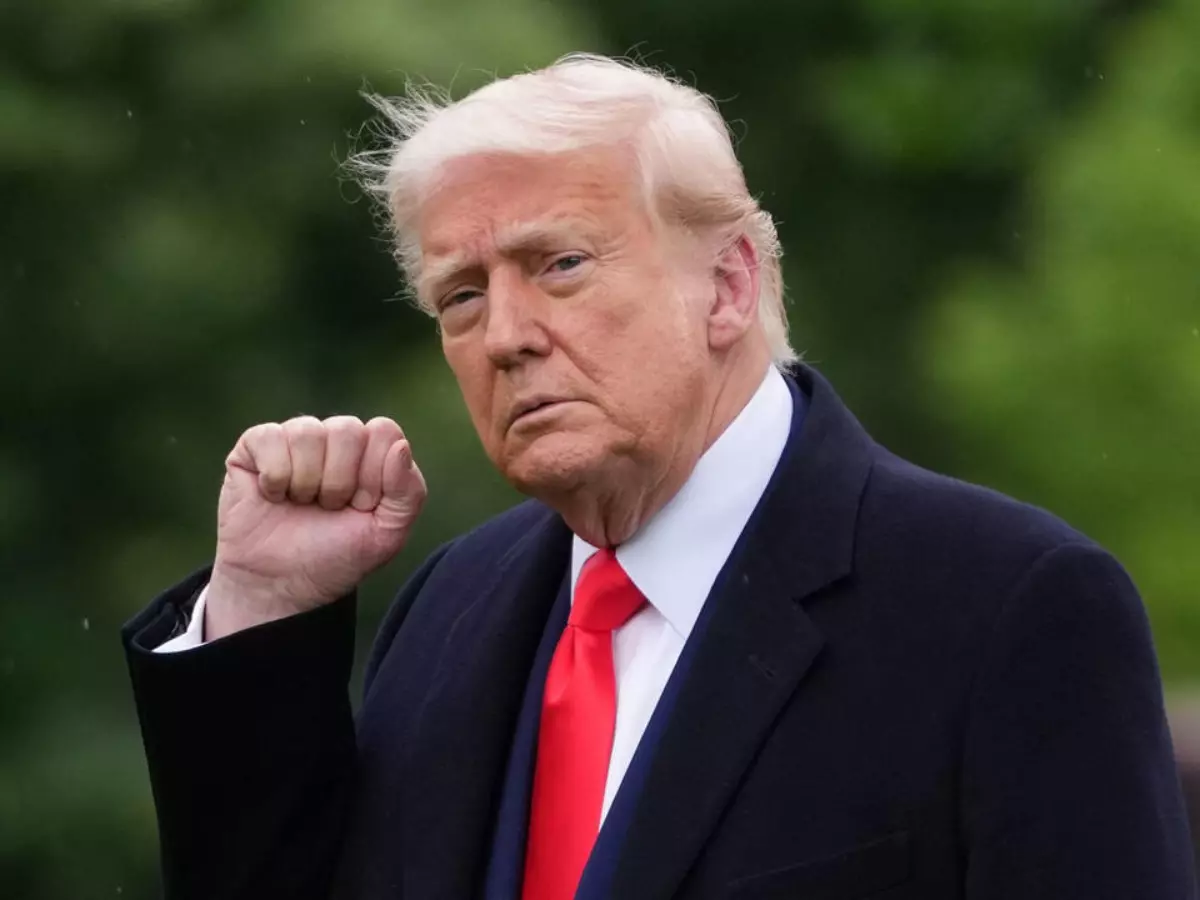US targets students, again: Trump admin to revoke visas of Chinese scholars with ties to Communist Party
The US will revoke visas of Chinese students linked to the Communist Party or studying in sensitive fields. This comes days after pausing student visa interviews, impacting many, especially from India.

The U.S. government will begin revoking visas of Chinese students who are either affiliated with the Chinese Communist Party or studying in fields considered sensitive to American national interests, Secretary of State Marco Rubio confirmed on Wednesday (May 29).
¡°The U.S. will begin revoking visas of Chinese students, including those with connections to the Chinese Communist Party or studying in critical fields,¡± Rubio said in a post on X (formerly Twitter). He added that the State Department will ¡°aggressively¡± pursue these revocations, indicating a stricter enforcement approach.
The decision comes just days after the Trump administration paused new visa interview appointments for international students, a move that has already caused concern in countries like India, which sends the second-largest number of students to the U.S. annually. The combination of these policies marks a continuation of tightened restrictions on international academic mobility.
The U.S. will begin revoking visas of Chinese students, including those with connections to the Chinese Communist Party or studying in critical fields.
¡ª Secretary Marco Rubio (@SecRubio) May 28, 2025
Visa revocations part of broader shift in student policy
This latest step adds to a growing list of policy changes aimed at foreign students, particularly from China. With over 270,000 Chinese students enrolled in U.S. institutions during the 2023¨C2024 academic year, the impact of this decision could be significant. Chinese students make up nearly one in four of all international students in the U.S., as per an AP report.
Rubio¡¯s office is also preparing updated guidelines to increase scrutiny of students¡¯ digital activity, including social media profiles - a requirement already in place since 2019 but expected to expand under the new rules.
Trump renews criticism of Harvard over international student numbers
At the same time, President Donald Trump has criticised Harvard University for enrolling what he described as ¡°too many¡± foreign students. Currently, international students make up about 31% of Harvard¡¯s student body. Trump has suggested this figure should be capped at 15%.
¡°We have people that want to go to Harvard and other schools but they can¡¯t get in because we have foreign students there,¡± Trump said. He also linked the presence of foreign students to broader security concerns, though no specific evidence was provided to support that claim.
Harvard has pushed back against the administration's demands, refusing to hand over certain foreign student records. The federal government responded by cutting more than $2.6 billion in grants. A federal judge has since temporarily halted the administration¡¯s effort to block the university from enrolling international students.
Uncertainty deepens for students already in the U.S.
Many international students say the new policies have created a climate of uncertainty and anxiety. ¡°There¡¯s a growing fear among us,¡± said a Chinese graduate student to AP, who asked to remain anonymous. ¡°We came here to learn and contribute. Now we¡¯re treated as threats.¡±
At the University of Wisconsin-Oshkosh, a Ukrainian student named Vladyslav Plyaka said he is unsure if he will be able to return to the U.S. after visiting family abroad. ¡°I don¡¯t think I have enough trust in the system at this point,¡± he told the Associated Press.
Others are cancelling travel plans altogether. A student from Vietnam at the University of Wisconsin-Madison described a feeling of ¡°constant unease¡± and said they now check regularly with university officials to ensure their status remains valid.
Visa categories affected, with broader implications for universities
The visa revocations and interview suspensions affect three main categories:
- F-1 visas for academic students
- J-1 visas for cultural and research exchange programs
- M-1 visas for vocational and technical training
In 2024, around 1.1 million international students were studying in the U.S., many of whom pay full tuition and are not eligible for federal financial aid, making them a critical source of revenue for colleges and universities.
Institutions are beginning to respond. Northeastern University, which has over 20,000 international students, has developed contingency plans. ¡°We are closely monitoring the developments in real time to assess any potential impacts,¡± said spokesperson Renata Nyul.
Previous actions echo a tightening pattern
The administration¡¯s stricter approach is not new. Earlier this year, students involved in pro-Palestine protests were detained by U.S. Immigration and Customs Enforcement. Legal protections for some international students were also briefly rescinded before being partially restored after public and legal pressure.
Fanta Aw, CEO of NAFSA: Association of International Educators, said the visa delays and revocations will ¡°do further damage to the U.S. reputation as a destination country,¡± calling the policy ¡°self-defeating¡± in terms of innovation and global competitiveness.
For countries like India and China, both major sources of international students, the timing and implications of these decisions are likely to be felt in the months ahead.
For more news and current affairs from around the world, please visit Indiatimes News.
